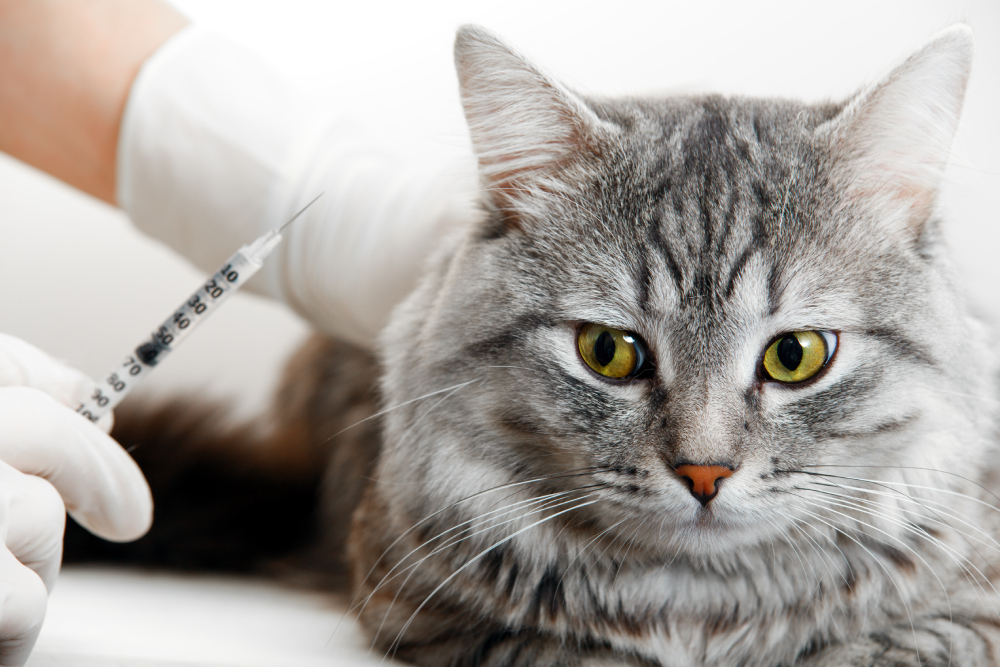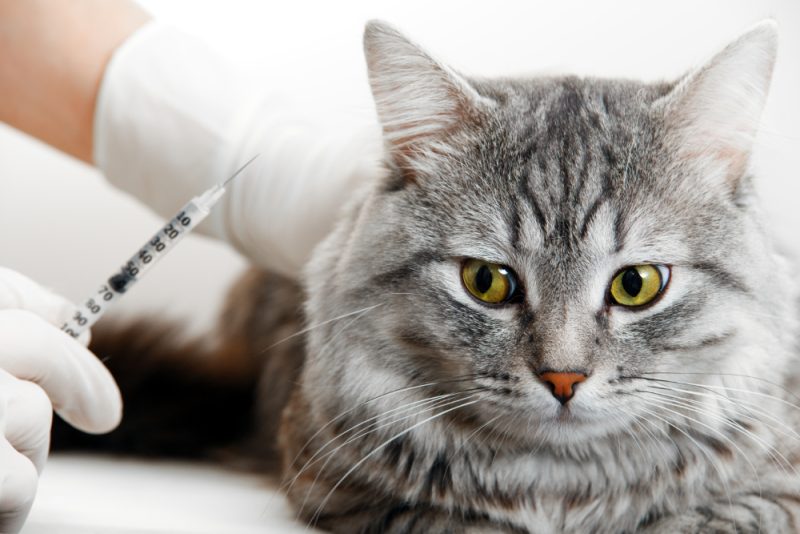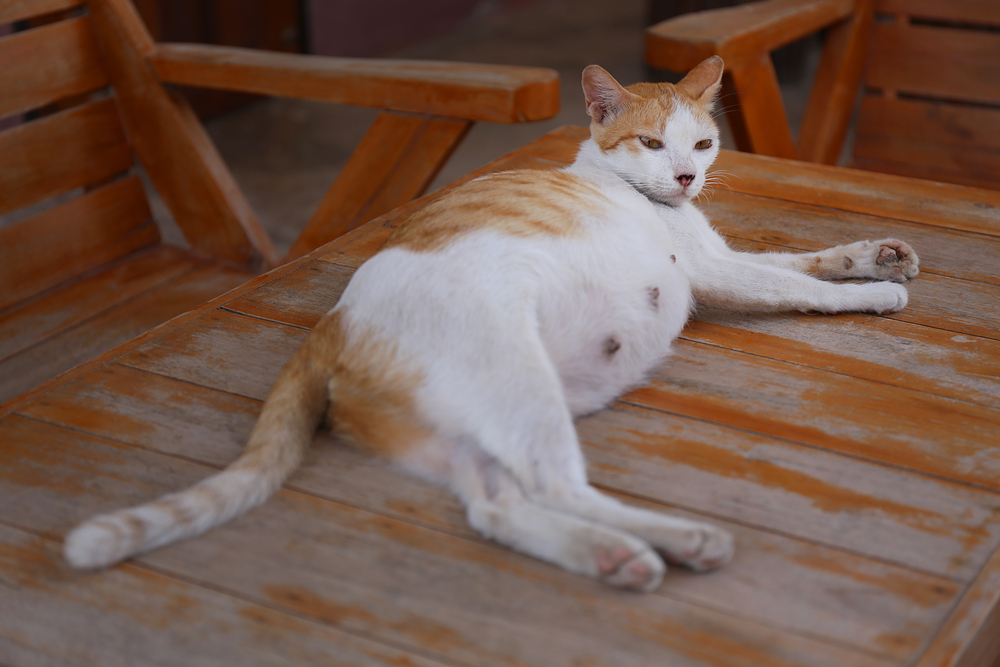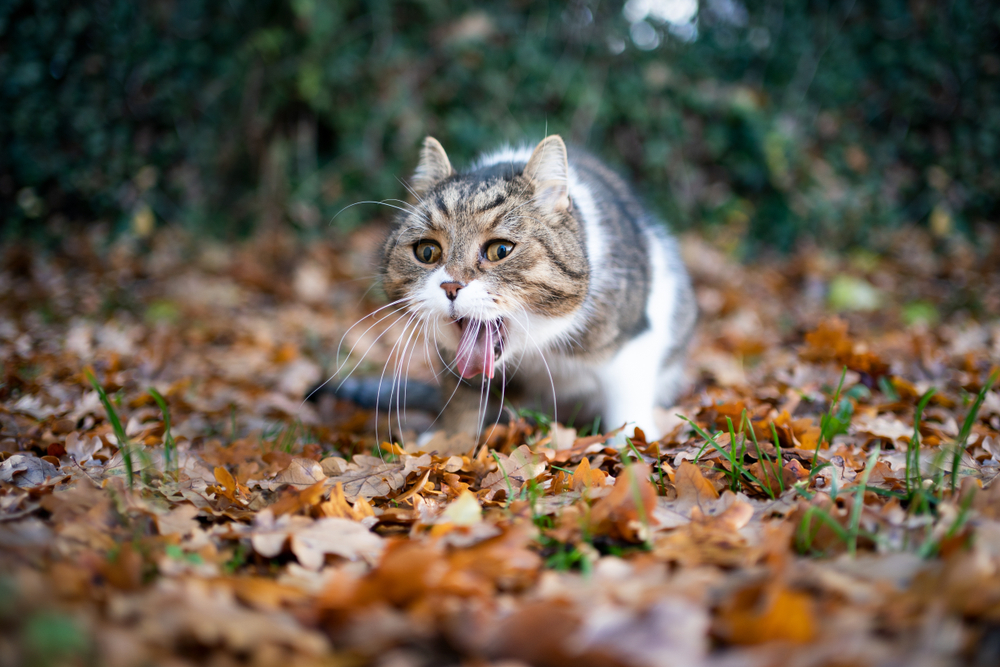Click to Skip Ahead
Steroid injections are used to treat a variety of conditions in cats, ranging from allergies to autoimmune diseases. Although steroids are essential for the treatment of many diseases, they do carry risks and have the potential to cause serious and occasionally life-threatening side effects. Read on to learn more about these risks as well as ways we can minimize them.
What Are Steroid Injections?
Steroids, or corticosteroids, are synthetic versions of hormones produced by the adrenal glands (two small glands that sit on top of the kidneys). Steroid injections are used to treat a wide range of diseases and conditions. They are typically used to reduce inflammation, and in higher doses, they’re used to suppress the immune system to treat autoimmune diseases.
In cats, common conditions that require treatment with corticosteroids include the following:
- Feline asthma
- Certain types of cancers (e.g. lymphoma)
- Inflammatory Bowel Disease (IBS)
- Skin allergies
- Eosinophilic granuloma complex
- Immune-mediated conditions causing low red blood cells or platelets
Steroid injections are only given by veterinarians. They can be given under the skin (subcutaneously), into a muscle (intramuscularly), or into a vein (intravenously). There are a number of different steroid injections available, although when we speak about steroid injections for cats, it’s most often the long-acting steroid injection, methylprednisolone acetate, that we’re referring to. Other examples include dexamethasone and prednisolone. These different types of steroids work in similar ways although they vary in strength and duration of action (varying from one to two days to several months).
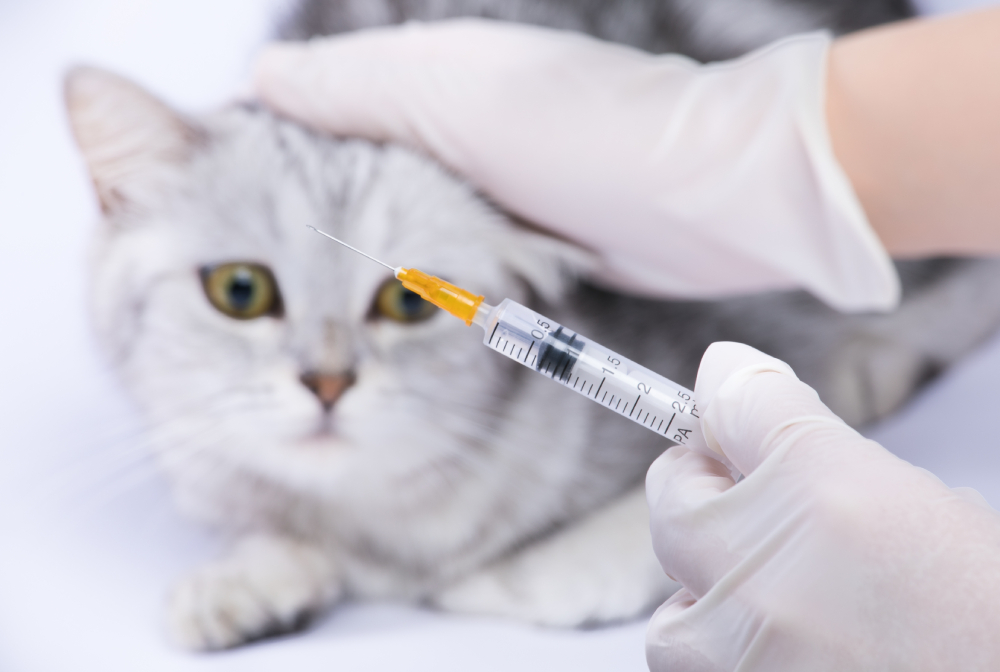
Do Steroids Come in Other Forms?
- Tablets and liquids (oral steroids)
- Inhalers
- Skin creams, lotions, and sprays (topical steroids)\
Risks and Side Effects of Steroid Injections
While cats appear to tolerate treatment with steroids better than other species do, side effects can occur. It’s important to note that side effects can occur with any form of steroid, not just injections.
- Increased thirst and urination (at high doses)
- Digestive upset – diarrhea is most common in cats, however vomiting and decreased appetite may also occur
- Thin and fragile skin
- Poor wound healing
- Recurrence of latent (inactive) viral infections in cats who are carriers
- Diabetes mellitus: some pre-diabetic cats may become diabetic after treatment with steroids
- Congestive heart failure: in rare cases, cats that have borderline heart function may develop heart failure when treated with steroids; this potentially deadly side effect is most often associated with the long-acting steroid injection methylprednisolone acetate
Long-acting steroid injections are usually reserved for cats that are difficult to give oral medication to. Many cats refuse to take pills, spit them out, or drool excessively after taking them. Owners risk getting scratched or bitten trying to give medication to an uncooperative cat. In these cases, a veterinarian may choose to give a cat a long-acting injection, such as methylprednisolone acetate (Depo-Medrol) instead of a course of pills.


Ways to Reduce the Risks of Steroid Injections
Most cats can use steroids safely if certain guidelines are followed.
- Steroids should be given at the lowest effective dose and for no longer than necessary. A short course of steroids at the lowest possible dose is less likely to cause side effects compared to longer courses at higher doses.
- Where possible, oral steroids should be used instead of long-acting injectable steroids. Oral dosing allows a veterinarian to quickly make adjustments to the dose if unwanted side effects occur. Ideally, long-acting steroid injections should only be used to treat cats that refuse to take oral medication, and these injections shouldn’t be given too frequently.
- If a cat requires frequent treatment with long-acting steroid injections, alternative treatments should be explored. For example, cats with skin allergies may benefit from allergy shots instead of repeated steroid injections, and steroid inhalers can reduce the need of steroid injections for asthmatic cats.
- Cats should ideally be screened for diabetes and heart disease prior to being given a long-acting steroid injection.
- Any cat treated with steroids —particularly those given long-acting injectables—should be monitored closely for signs of diabetes such as excessive thirst, urination, and weight loss.
- Cats on long-term steroids should be closely monitored and receive regular veterinary check ups, including blood and urine tests.
Frequently Asked Questions
How long does a steroid injection stay in a cat’s system?
This depends on the steroid injection given. Different steroid injections have varying durations of actions. For example, prednisolone has a duration of action of 12–36 hours, dexamethasone 36–54 hours, and methylprednisolone acetate 30–60 days.
How long does it take for a steroid injection to work?
The answer depends on the steroid injection used as well as the condition being treated, but generally you should see an improvement in your cat’s symptoms within a few hours to a couple of days of receiving an injection.
Are steroid injections for cats the same as the ones abused by some athletes?
Although they’re both referred to as “steroids”, corticosteroids are different from anabolic steroids that are sometimes abused by athletes. Anabolic steroids mimic the naturally occurring male sex hormones called androgens. These drugs are sometimes used by athletes and bodybuilders to enhance muscle growth and performance.
Conclusion
While cats appear to tolerate steroids better than other species, steroid injections are associated with certain risks and side effects. Side effects are more likely to occur when steroids are given at high doses for long periods of time. For this reason, long-acting steroid injections are more likely to cause issues than other forms of steroids. Where possible, oral steroids should be used instead of long-acting injectables. However, if this isn’t possible, a cat should be screened for diabetes and heart disease before starting treatment. If repeated steroid injections need to be given, then alternative treatments should be explored.
Freatured Image Credit: KDdesign_photo_video, Shutterstock

